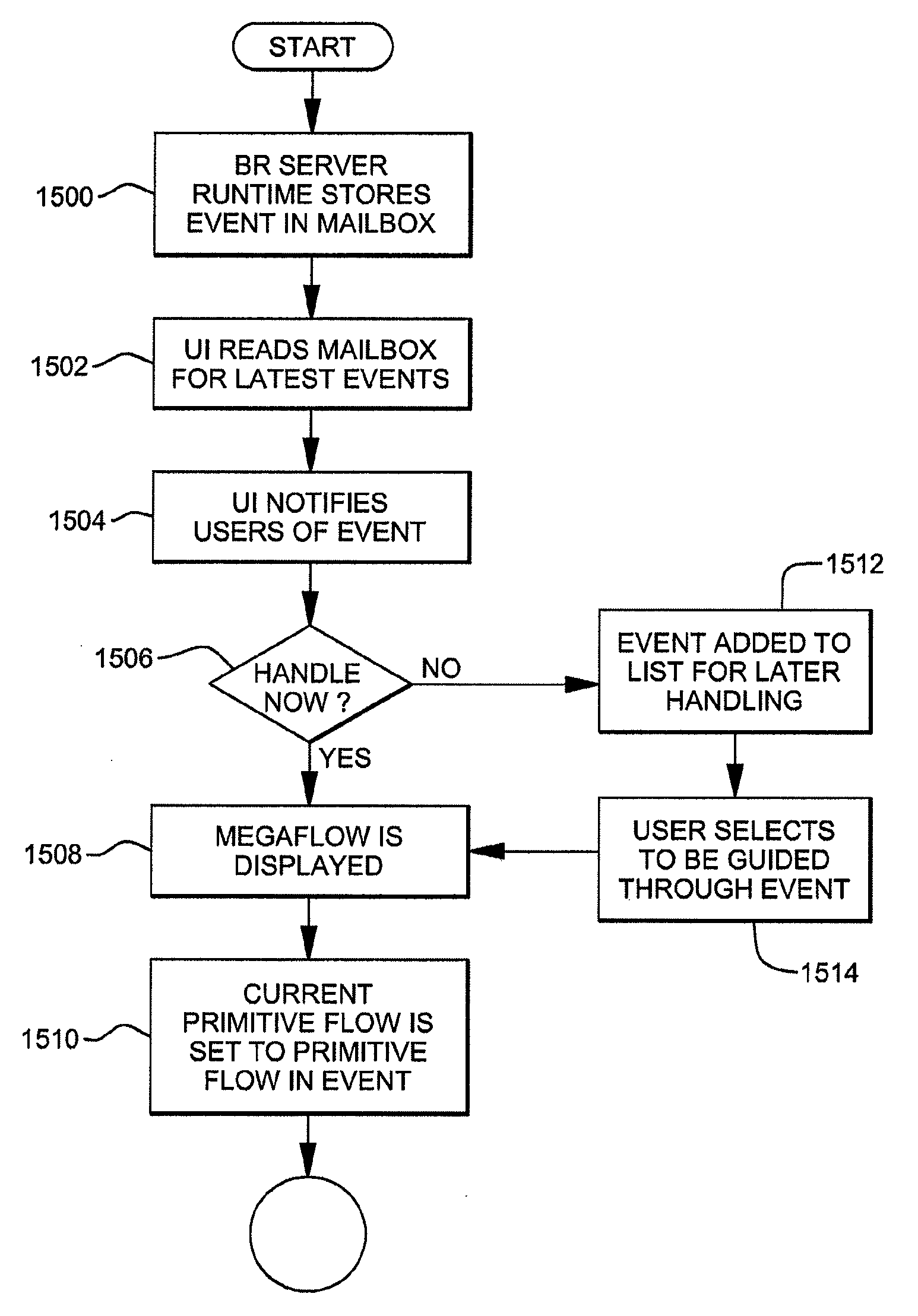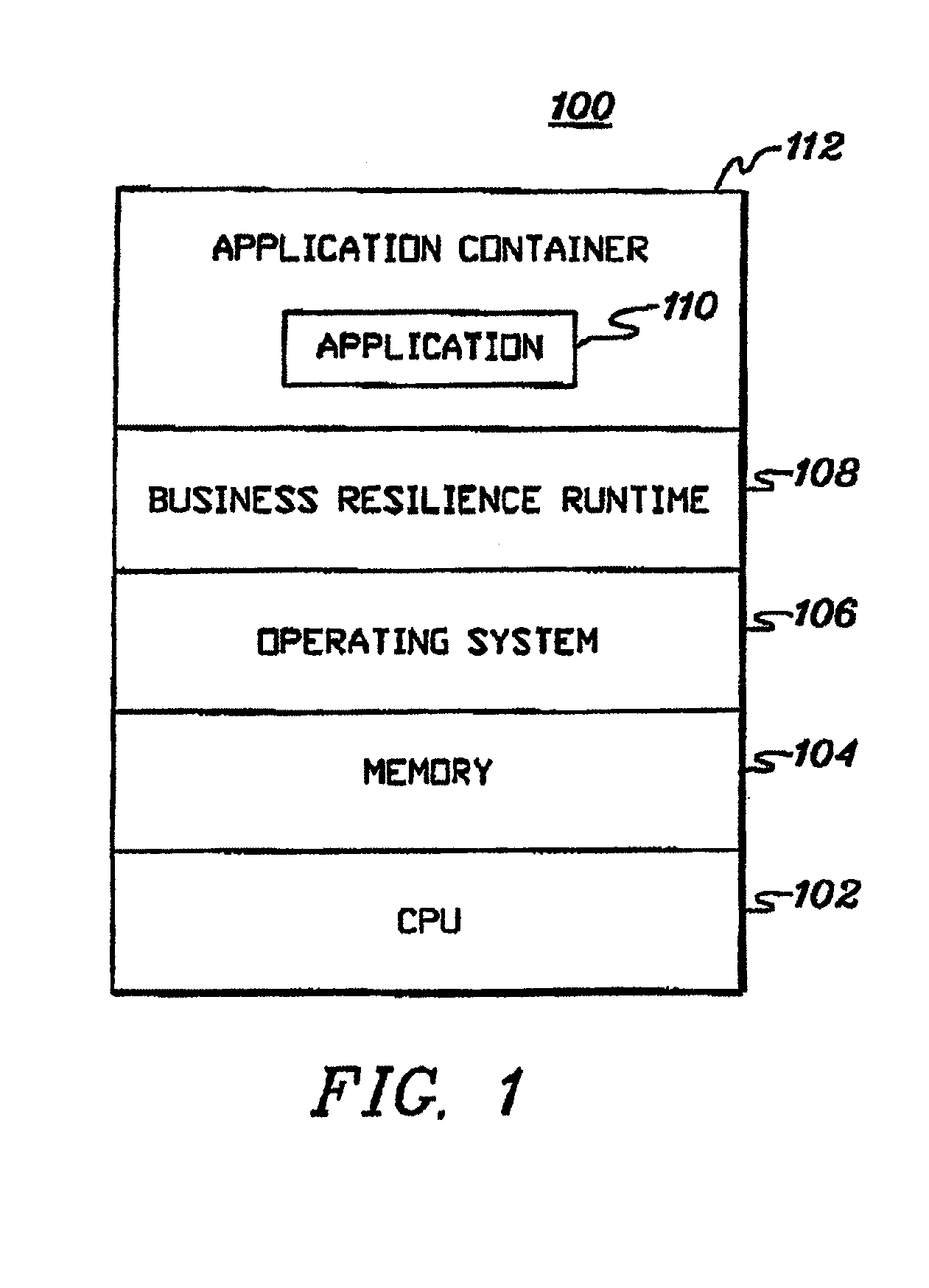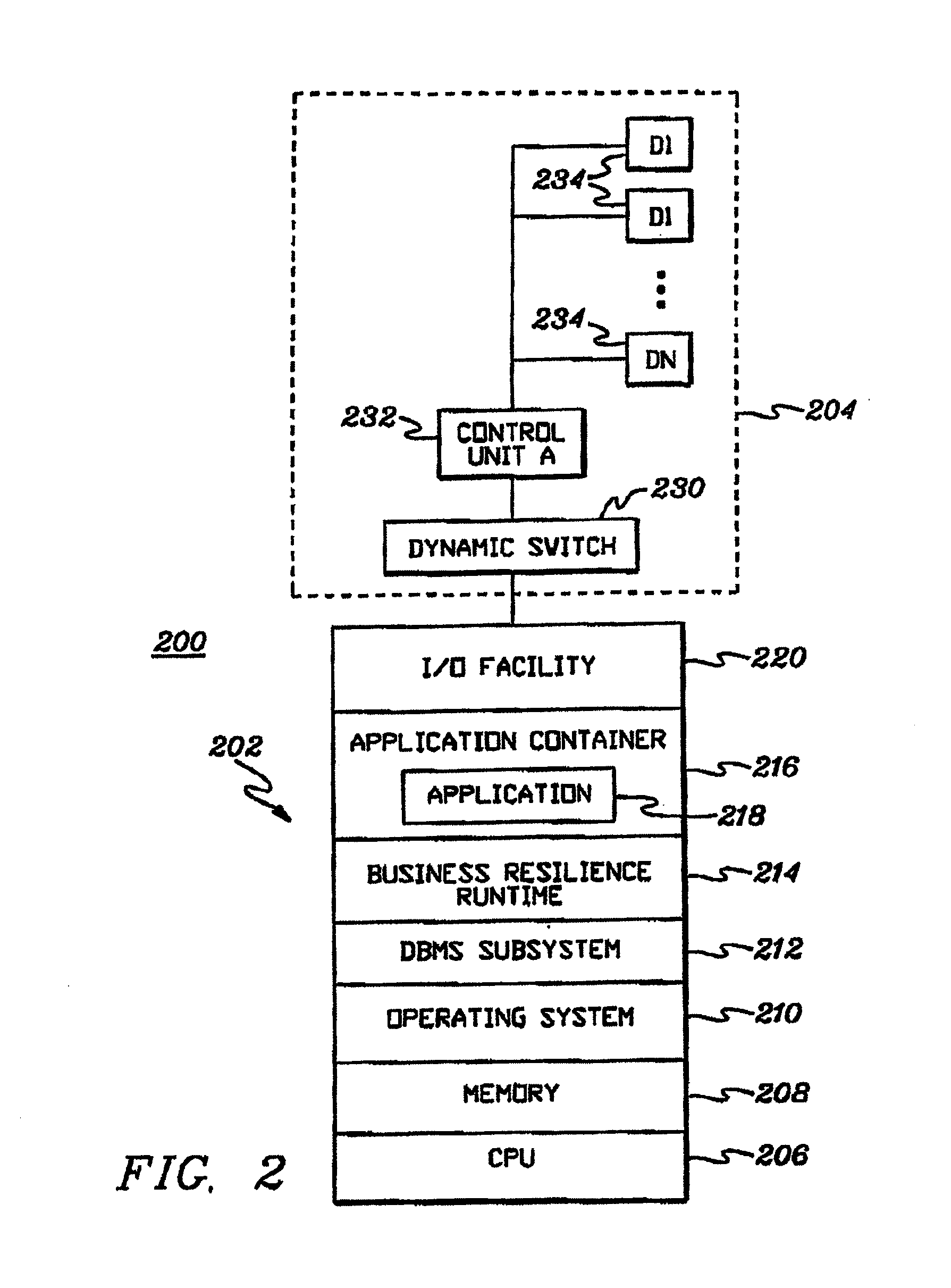Adaptive computer sequencing of actions
a technology of computer sequencing and actions, applied in the field of managing customer environments, can solve the problems of inflexible environment, proprietary and very specific, and more drastic and costly actions to be taken
- Summary
- Abstract
- Description
- Claims
- Application Information
AI Technical Summary
Benefits of technology
Problems solved by technology
Method used
Image
Examples
example
[0448]A “Change PSE” megaflow is used to demonstrate the implementation concepts described herein. This megaflow handles changing the active PSE on a RS that is being monitored.
[0449]This megaflow includes the following steps to be completed:[0450]1. Deactivate Monitoring for an RS in order to change the PSE.[0451]2. PSE (new or existing) is associated with RS.[0452]3. Activate Monitoring of RS.
[0453]An example of this megaflow processing is as follows:[0454]1. The megaflow definitions are read (STEP 900, FIG. 9).[0455]2. The list of megaflow definitions are displayed to the user (STEP 902).[0456]3. The user selects the Change PSE megaflow (STEP 904).[0457]4. The megaflow is displayed (STEP 906).[0458]5. The first step of the megaflow is set to be the current step (STEP 908).[0459]6. The first primitive flow deactivates an RS so its PSE can be changed.[0460]a. The user clicks on the complete action for the first primitive flow (STEP 1202, FIG. 12), running the UI code that invokes t...
PUM
 Login to View More
Login to View More Abstract
Description
Claims
Application Information
 Login to View More
Login to View More - R&D
- Intellectual Property
- Life Sciences
- Materials
- Tech Scout
- Unparalleled Data Quality
- Higher Quality Content
- 60% Fewer Hallucinations
Browse by: Latest US Patents, China's latest patents, Technical Efficacy Thesaurus, Application Domain, Technology Topic, Popular Technical Reports.
© 2025 PatSnap. All rights reserved.Legal|Privacy policy|Modern Slavery Act Transparency Statement|Sitemap|About US| Contact US: help@patsnap.com



